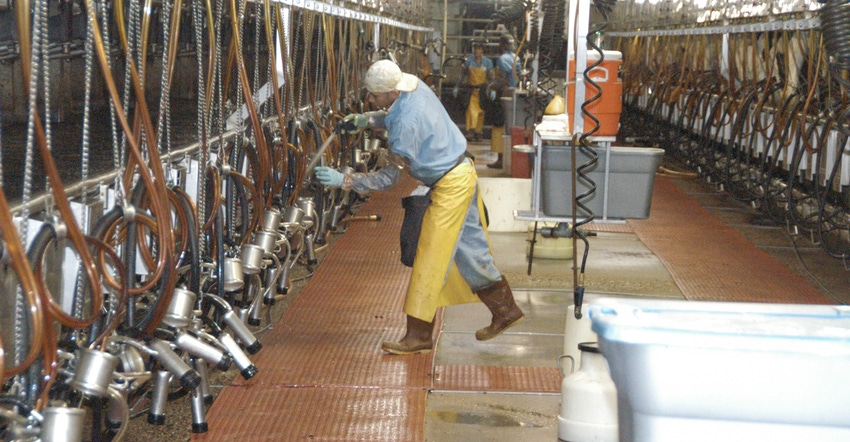July 11, 2019

Current immigration policy, on an individual level, is hurting people and families. Beyond that, on a societal level, it is hurting the American economy and, more specifically, American agriculture.
This is because agriculture, like any business, thrives on stability, and the policies now in place promote instability in the work force, instability in the work place and instability in the planning process for the immediate, let alone the distant, future.
Immigrants built this nation. Their sacrifices of blood, sweat and tears left a legacy we cannot ignore. They built their livelihood literally out of the ground, the same ground that we — their descendants — now farm.
Back when I was advocating for wheat farmers a few years ago, my favorite break from the day’s work was listening to the stories of emigration from the Old World. One colleague described the moment of decision when his grandmother chose to leap onto the departing ship, into the arms of his grandfather. Had she not taken that leap of faith, he would not have been born to tell that story. This is his legacy.
Without a nation’s welcoming arms to beckon weary travelers who were ground down by oppressive governmental regimes and fleeing religious persecution, desirous to live in freedom, this nation may have been a minor footnote in the history of the world.
Our collective story is the sum of their stories. Without the seed of Turkey Red Winter Wheat one group of immigrants brought with them, Kansas would have never become the Wheat State.
How we address immigration policy today will have far-reaching impacts on the lives of millions of people, not to mention our nation’s future. Maintaining a secure border to preserve our sovereignty is but one important facet of good policy. Maintaining and enhancing our nation’s security from illegal entry requires more than a wall with a gate guarded by law enforcement.
But before we do this, we must engage in due diligence and learn from the successes and failures of previous and current policies, plus discover historical and current patterns of migration that impact our world. Learn more about the ongoing discussion by reading work published by the Migration Policy Institute, the International Rescue Committee, History.com and the Pew Research Center.
For agriculture to prosper and grow, we require a stable immigration program not only assuring employers of workers but a sensible regulatory environment, one designed to assure the people walking through those doors that they can live here and not fear deportation due to an abrupt change in administration attitudes. Stability is the ally and friend of agriculture and the people who work in the industry.
Recognizing the incredible flow of people fleeing tyranny and oppression from lawless gangs and corrupt governments in their home country requires new ways of addressing our nation’s role in providing stability, not only at home, but in the global environment. This requires our nation to step up and take a more proactive role in forging alliances with countries who are willing to improve the lives of their own citizens.
We are the nation with the resources to do this. We must decide how our legacy as a nation of immigrants will respond, for better or worse.
Penner is a Marion County farmer and past president of the National Association of Wheat Growers. His email is [email protected].
About the Author(s)
You May Also Like




